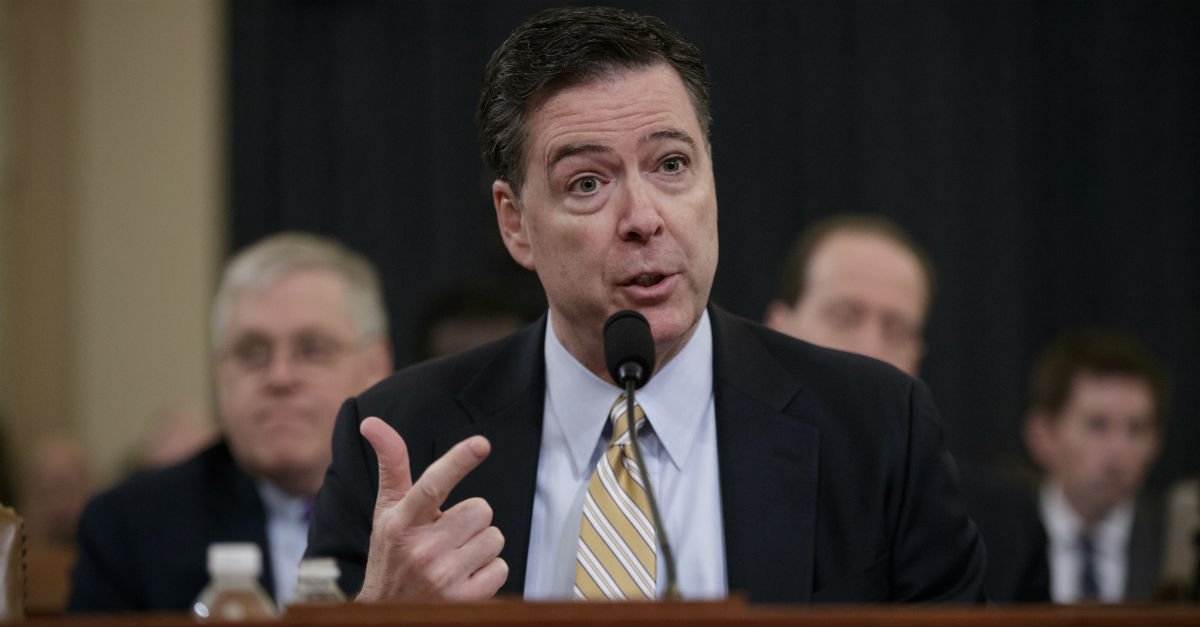Since Edward Snowden blew the whistle on the NSA four years ago, the right question to ask is not, “Is our government conducting warrantless mass surveillance on innocent Americans and then recklessly handling the sensitive information it collects?” but rather, “How expansive is this surveillance and how irresponsible is the data handling?”
Videos by Rare
The answer, as an under-reported scoop from Circa confirms once again this week, is “really expansive” and “incredibly irresponsible.” From the Circa report:
The FBI has illegally shared raw intelligence about Americans with unauthorized third parties and violated other constitutional privacy protections, according to newly declassified government documents that undercut the bureau’s public assurances about how carefully it handles warrantless spy data to avoid abuses or leaks. […]
The FBI normally is forbidden from surveilling an American without a warrant. But Section 702 of the Foreign Surveillance Act, last updated by Congress in 2008, allowed the NSA to share with the FBI spy data collected without a warrant that includes the communications of Americans with “foreign targets.” […]
One of the biggest concerns involves so-called backdoor searches in which the FBI can mine NSA intercept data for information that may have been incidentally collected about an American. No warrant or court approval is required, and the FBI insists these searches are one of the most essential tools in combating terrorist plots.
RELATED: It turns out Rand Paul may have been right about the government surveilling him
Among the recipients of the data the FBI shared was a federal contractor and another “private entity,” meaning the FBI didn’t even keep this information about innocent Americans, collected in violation of the Fourth Amendment, confined to government networks. Meanwhile, now-fired FBI Director James Comey told Congress just a few weeks ago that the information in question “has been lawfully collected, carefully overseen and checked, and our use of it is also appropriate and carefully overseen and checked.”
Yeah, not so much.
Of course, the feds’ rationale for this cavalier approach to Americans’ privacy is that it’s necessary to keep us safe. Back in 2015, the Circa story notes, the Obama Justice Department argued that tightening data management rules “would keep FBI agents from connecting the dots in terror cases.” The DOJ even compared the FBI’s unfettered access to the NSA database to an ordinary person using Google, as if sifting through the fruits of mass surveillance is no big deal.
The constitutional, legal and ethical issues this report raises are huge, but it’s this argument from necessity that I want to address here, because it is always the last refuge of surveillance defenders.
Contrary to the FBI’s dramatic suggestion, mass surveillance is not an effective way to stop terrorism. The reason we don’t hear about all this warrantless spying preventing huge, tragic attacks is because it doesn’t happen.
“Superficially, it just makes sense that in order to ‘connect the dots’ you first have to ‘collect the dots,'” explains Jennifer Stisa Granick at Wired, but in real life intelligence agencies just end up with a huge pile of irrelevant dots — and an equally huge pile of privacy violations that affect ordinary people. That pile crushes law enforcement officers, bogging them down in details that more traditional, limited surveillance would skillfully avoid.
In other words, mass surveillance actually makes us less safe.
FBI officials said almost all the violations Circa reported were “unintentional human errors by good-intentioned agents and analysts under enormous pressure to stop the next major terror attack.” There’s a lot of reason to be skeptical about that claim, but maybe it’s true.
Even if that’s the case, it doesn’t excuse what happened. It doesn’t excuse the fact that this database of warrantless mass surveillance existed in the first place.



